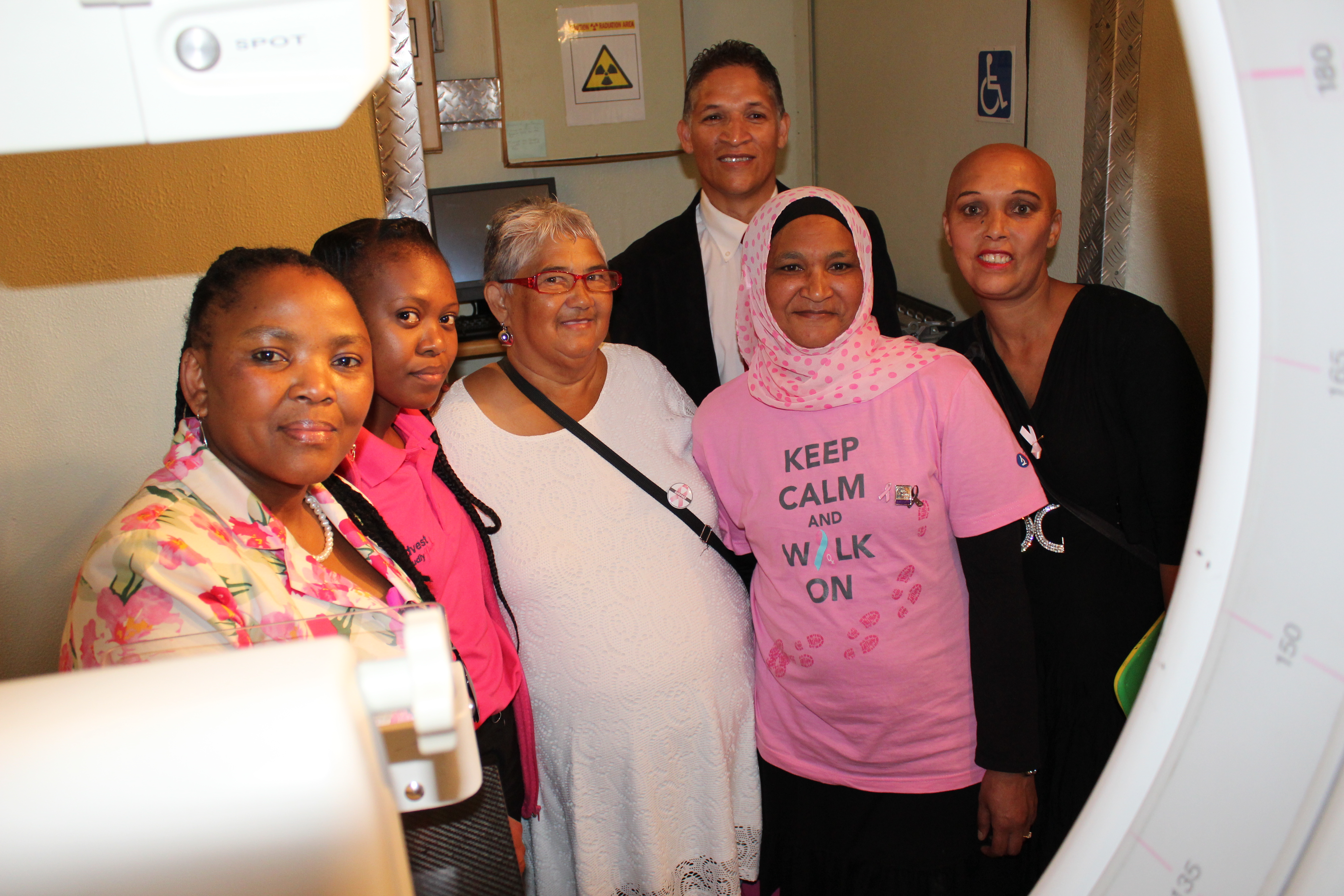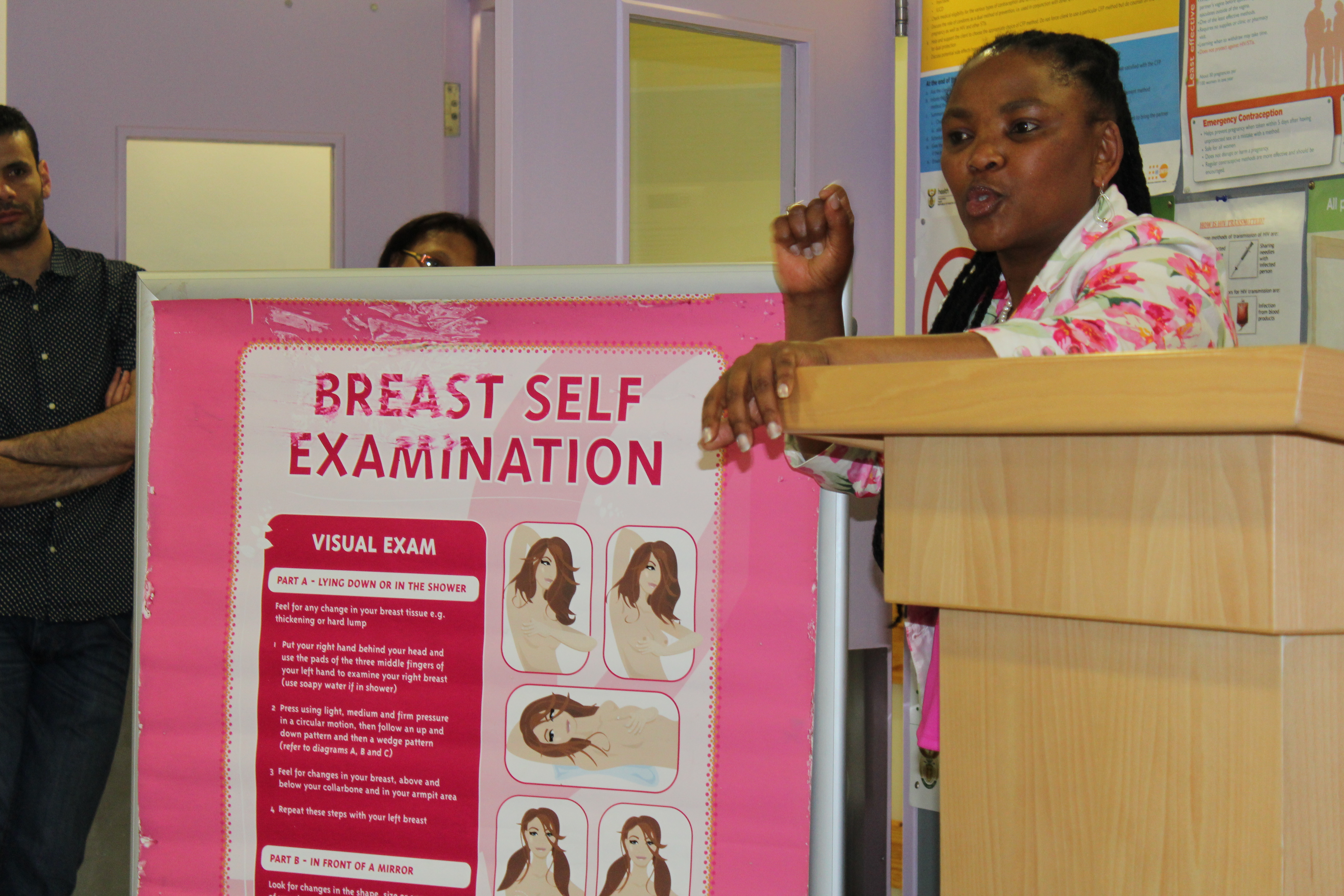
News
Breast Cancer the leading cause of death among women
STATEMENT BY DR NOMAFRENCH MBOMBO
WESTERN CAPE MINISTRY OF HEALTH
DATE: 26 October 2015
Breast Cancer the leading cause of death among women
Release date: immediate
Today, Dr Nomafrench Mbombo commemorated Breast Cancer Awareness month at Mitchells Plain Hospital, in partnership with Pink Drive and CANSA.
Throughout this month, people across the country have intensified the drive to raise awareness of this debilitating disease on our female population.
The incidence of breast cancer among South African women is increasing and it is one of the most common cancers among women in South Africa. Global statistics cite that 1 in 8 women get breast cancer, in the Western Cape approximately 1 in 12. At Groote Schuur Hospital (GSH) for example, between 10 and 20 new breast cancers are diagnosed every week.
The Western Cape Mortality Profile 2012 reports that breast cancer is the eighth top cause of death amongst women in the province, with 768 women who died as a result of breast cancer in that year. Breast cancer mortality rates were highest on the West Coast, followed by Overberg, and lowest in Central Karoo.
Breast cancer is one of the leading causes of death among women. It is a highly relevant disease, for which systematic approaches to early detection, diagnosis and treatment must be implemented to improve outcomes. In the Western Cape, this trend is echoed by the incidence of women diagnosed with Breast cancer (41.3%) and cancer related deaths (23.8%).
“I would like to encourage females, as well as males, to get screened for breast cancer as early as possible. Early detection is vital to get onto treatment that will improve the prognosis. Recently, we have seen an increase in males diagnosed with cancer. If you have a history of breast cancer in the family, please go to your nearest facility to get screened. The screening services are also offered through initiatives like Pink Drive, who visit Mitchells Plain Hospital and GSH regularly.” Says Minister Mbombo
GSH provides treatment to clients referred from the majority of facilities within the metropole. During 2014-15 the hospital attended to 6905 clients. Of these 492 were newly diagnosed breast cancer patients. A further 457 clients were attended to at Mitchells Plain Hospital as part of their outreach service.
In 2013 there were no males diagnosed with breast cancer but since 2014 there seems to be an increase in males and young woman getting breast cancer. In 2014, three (3) males between the ages of 45 and 90 were diagnosed with breast cancer. To date in 2015 eight (8) males between the ages of 45 and 85 have already been diagnosed with breast cancer. Male breast cancer is rare, accounting for 1% of all breast cancers. It is a hundred times more common in women than in men.
Family history plays an important role in contracting the disease. Especially first degree relatives (mom/sister) who were diagnosed at a relatively young age are important to mention to your doctor. The signs are the same for men and women: a breast lump with skin changes and/or a nipple discharge.
Signs and Symptoms
There are specific signs/symptoms you should look out for. The most common presenting complaint is that of a palpable lump in the breast. These lumps are often not painful. Other signs may include a bloody nipple discharge, skin changes and palpable lymph nodes in the axilla. Early breast cancers may be picked up by ultrasound or mammography before a lump can be felt.
Early detection and self-examination is vital
For women, monthly breast self-examination two days after the last day of your period is the most important screening method and costs nothing. If you are not sure how to perform breast self-examination, ask your doctor to show you how. Women over the age of 45 should consider going for regular mammography. Depending on each individuals unique risk profile, mammography should be discussed with your doctor. Younger women have denser breast tissue and would benefit more from an ultrasound examination than a mammogram.
Male breast cancer is rare, so routine screening mammograms (mammography) generally aren't recommended for men. If you have a strong family history of breast cancer, consider talking to your doctor about developing a breast-screening program. A simple monthly breast self-exam is suggested to check your own breasts for lumps or anything that seems unusual.
Treatment
Great strides have been made in the treatment of breast cancer. If detected early, breast cancer patients now have an excellent prognosis. No two individuals are the same though and many factors will influence survival including the age of the patient, tumour characteristics, the stage of the disease and the treatment plan chosen by the patient.
Once you are diagnosed, several treatment options are available to you. Treatment differs for each individual patient depending on the stage of cancer and tumour characteristics of the cancer, which is why your doctor will discuss the relevant treatment plan with you in detail.
We would like to highlight that there are many preventative measures to that are able to minimise the risk of contracting the disease.
• Healthy diet with a normal BMI
• Exercise,
• stop smoking,
• and use alcohol in moderation.
• Have your children before the age of 30 if possible and breastfeed.
Colleen Smart
Spokesperson to Minister Mbombo
Mobile: 072 825 3257
E-mail: colleen.smart@westerncape.gov.za
Western Cape Government: Health





